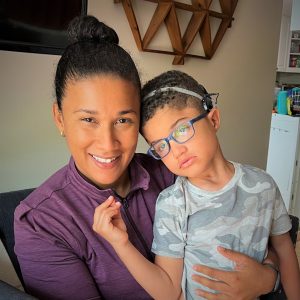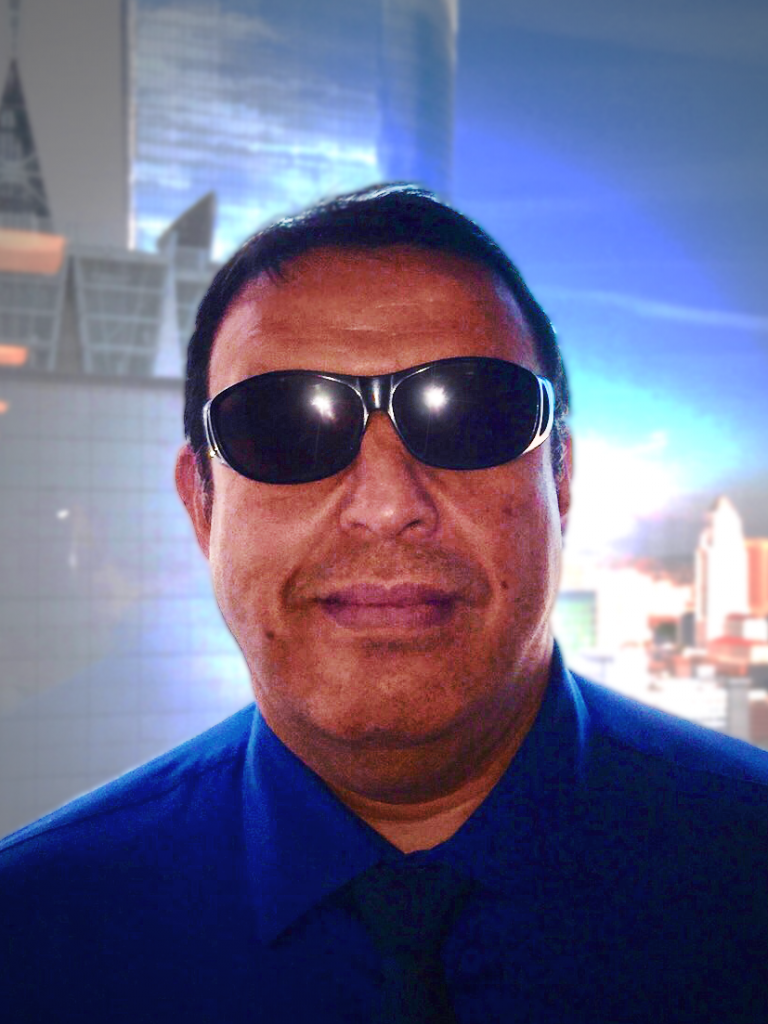By Elizabeth Rouse, Central College Class of 2020
Note:
October 12 is World Sight Day and October 15 is White Cane Safety Day / Blind Awareness Day

Elizabeth Rouse
Elizabeth Rouse is a 19-year-old sophomore at Central College in Pella, Iowa. She is pursuing a bachelor’s degree in English with the intention of attending law school in the fall of 2020. In her free time, Elizabeth participates in Bridge Club, belongs to the sorority Zeta Upsilon, and volunteers as a YoungLife leader in her local high school community.
When I was about five-months-old, my daycare provider noticed I was not tracking things with my eyes in a way that was similar to other babies my age. After a visit to my pediatrician that led to a visit to a genetic specialist at the University of Iowa, my parents discovered that I have Leber’s Congenital Amaurosis (LCA), a genetic disease that stopped the rods from forming in my eyes. This recessive genetic disease is not common. About 3,000 people in the country have it. My vision is 20/400 in both eyes, and it is something that cannot be corrected with glasses. The “cure” is genetic replacement therapy. Being legally blind has proven to be a challenge, but my parents never allowed me to use it as an excuse to sit on the sidelines. They pushed me to excel in everything I chose to do, and they helped me and others who supported me to succeed.
In elementary school, my accommodations were simple. Verbalizing by the teacher, brailled calendars, and other classroom items supported my participation in classroom activities, and, of course, I used a white cane in the hallways. I had a paraprofessional, a wonderful woman named Bonnie, who learned braille and went to trainings to best support my needs and those of my teacher. Over the years, my friends and classmates got used to my needs and pretty much got out of my way in the hallway, limiting the use of my cane indoors. This helped me feel much more like the other students. I am very grateful that my school was small enough to allow me to get to know everyone and create such a level of comfort and success.
In middle school, the challenges began to come more frequently as the curriculum got harder and travel became more a part of my daily experience. My paraprofessional continued to support my needs but in a different way. She went to my classes with me to help me learn how to develop specific skills, such as taking notes. Additionally, class materials, such as quizzes, written up by teachers ahead of time, were sent to be brailled by the Iowa Department of the Blind library services. Any materials needing to be brailled that could not be planned ahead of time were transcribed on sight by my paraprofessional.
My textbooks were also available in braille, but these presented a challenge in and of themselves. Because braille takes up a ridiculous amount of space, a normal sized textbook for history or science could be anywhere from 25 to 40 volumes in braille. This made carting my materials from class to class a bit more difficult. The administration in my school allowed me a rolling backpack to lessen the stress on my back. Additionally, I was given a bigger locker than most of the other students to compensate for my larger amount of materials. While I did not want to use my white cane, I found I had to use it to get used to traveling in the middle school as well as let others know of my presence. Eventually, I was able to use it infrequently, as I had done in elementary school.
When I started high school, I was terrified. As I have an older brother, I knew some of the classes I would have to take would be a bit difficult. I am forever grateful to the teachers I had my freshman year as they made my transition to and experience in high school much less stressful. I specifically remember having a biology teacher who went above and beyond to make sure I was included in the learning experience just as much as the other students in my class. The teachers and I learned how to learn together in many ways. Flash drives for exchanging content and assignments became an important tool for us.
Additionally, I was a bit nervous about extracurricular activities. Most of my friends were athletes, but I could not participate in volleyball, basketball, or other fast-paced sports. However, this caused me to seek participation in other activities. Throughout high school, I was an avid member of the choir and theatrical programs in my school. I led my team in a battle of the books club competition, and I was the president of Family, Career and Community Leaders of America. I was super stoked my sophomore year when I decided to become a member of the wrestling cheerleading squad and found much success.
I graduated in 2016 valedictorian of my class and received multiple high-value scholarships to different universities. I chose Central College in Pella, Iowa. As a sophomore, I could not ask for a better place for me to earn my undergraduate degree. I plan to major in English with minors in theatre and religion. My long-term plan is to go to law school.
What I have learned in my life is that the only limits I have are those I put on myself and there is nothing embarrassing about asking for help. My journey so far has helped me understand that achieving greatness is not tied to my gender, race, socioeconomic status, or any accommodation I may have gotten in order for me to have a level playing field. Greatness is achieved because of effort and discipline. Those come from my own desire to be the best at what I choose to do, vision excluded.
Thank you so much for taking the time to read my blog post. If I could teach everyone in the world one thing, I would like to project that just because a person has some limitation that is out of their control does not mean they are less of a person. Given the right tools and supportive people who want to see them succeed, the possibilities are limitless.
Blog articles provide insights on the activities of schools, programs, grantees, and other education stakeholders to promote continuing discussion of educational innovation and reform. Articles do not endorse any educational product, service, curriculum or pedagogy.








